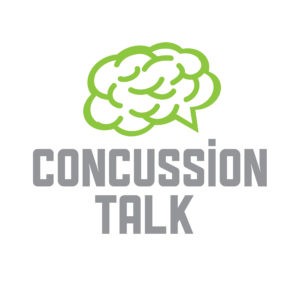Ashley Hiscock, owner of Premier Athletic Therapy and Sports Medicine, and Concussion Talk Podcast sponsor, writes about athletic therapy for June, National Athletic Therapy Month.
Recently, the Canadian Olympic Committee and the Canadian Paralympic Committee adopted new guidelines with regard to sport-related concussions. These guidelines have been created in an effort to reduce the impact that concussions have on this country’s high-performance athletes
and have been immediately adopted in the lead up to the 2019 Pan American Games and the 2020 Summer Olympic Games.
It is suggested that athletes who participate in high-risk sports (i.e. alpine skiing, ski jumping, figure skating, hockey, boxing, wrestling, rugby, gymnastics, volleyball, diving, etc.) take part in a pre-season clinical assessment when they are healthy and uninjured in order to establish baseline measures. These baseline measures would then be used if the athlete sustained a
suspected concussion, which is being defined by these guidelines as “traumatic brain injury induced by biomechanical forces.†Biomechanical forces may include a direct blow to the head, face, neck, or even to the body by which the force may be then transmitted to the head (i.e. whiplash mechanism injury). Sport related concussion usually results in a quick onset of temporary and short-lived impairment of neurological function that resolves on its own. It is possible for symptoms to develop over the course of a few minutes to a number of hours.
High-risk National Sport Organizations are expected to have up to date sport concussion policies and procedures in place to specifically address concussion education and awareness, code of conduct, removal from sport, and return to sport. As a group can only be as strong as its
weakest link, the onus is placed upon all stakeholders (athletes, coaches, parents, healthcare professionals) to take an active role in the management of concussions.
And where does all of this fit in our day to day lives? We are so quick to look at our high-level athletes and recognize that they have advantages and resources that most of us don’t have
access to. However, when it comes to sports participation and mitigating injuries, shouldn’t we be taking all precautions possible when it comes to our grassroots and novice-level athletes?
How many of our young up and comers quit sports due to injury? Why do we only start taking care of our athletes when they’ve essentially beat all the odds and persevered through to the elite level despite all the obstacles of potential injury and burnout?
Part of this stems from the western world’s glamorization and glorification of athletes, specifically professional athletes, training and competing through injuries. The life of competitive athletes comes with unavoidable bumps and bruises, aches and pains. The expectation to train and compete through significant injuries, however, should never be expected of recreational or competitive athletes, especially in minors. Our “win-at-all-cost†attitude that prevails through minor associations is disheartening, especially when it is known that the chances of becoming a professional athlete is less than 2% according to the NCAA. Our children and young athletes should be challenged to accomplish their goals in their own time,
and more importantly, foster life-long habits with physical activity and the lessons that are inherently learned through sports participation, such as discipline, time-management skills, teamwork, problem-solving skills, and hard work.
June is National Athletic Therapy Month. Certified Athletic Therapists are trained to recognize and manage concussions, as well as musculoskeletal (muscle, bone, and joint) injuries in field and clinical settings. Additionally, Certified Athletic Therapists are trained First Responders and have an advanced first aid skill set that may be necessary at the time of a serious injury. This June, please consider the wellness and safety of our young athletes and contact your local Athletic Therapist.
Ashley Hiscock, CAT(C), B.Kin, BAHSc(Athletic Therapy)
Certified Athletic Therapist

